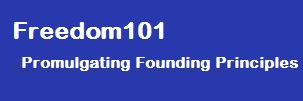This is the text of a speech I gave at a Toastmasters meeting May 14, 2013 (Start of Speech):
I was at a meeting recently when, a participant answered a question about what she though of the fact that 61% of the taxpayers use professional help. She said that this is great, because it creates work for people, and it can be a person’s way of “spreading the wealth”. This is true, and it made me smile inside, because I would have answered the same way a few years ago, not as eloquently, but with the same idea. But since studying our system, I’ve found that there is a “rest of the story”.
But before jumping into this discussion, you need to understand what I mean by the word “wealth”. Wealth, to me, is goods and services that improve prosperity, or our standard of living. Using this definition, we can say that most of us have jobs or businesses that create wealth that we share with others by use of the free market system, or what we call capitalism.
Also, I want to be sure that you understand that there are a couple of proposed alternate tax systems: one called the “Fair Tax” system, which is a sales tax as described here, and the other one called the “Flat Tax” system, described here. Either of these systems would eliminate the need for tax preparers and the need for 90% of the IRS. Note: There is more than one “Flat Tax” proposal, but I like the Heritage plan the best because it has been updated over time and has been bracketed against Congressional Budget Office projections of future income and debt. And it seems to me to be a well thought out, practical, fair and compassionate plan.
So let’s analyze the situation. There are about 1.2 million professional tax preparers, and about 110 thousand IRS employees. Between the two, they represent almost 1 percent of the 150 million labor force in the US.
If we were to adopt the Flat Tax or Fair Tax system, we would immediately put about 1% of our labor force out of work, and we would have more than 1% more money in our pockets, because let’s face it, tax preparers and IRS people are highly trained professionals earning well above average income.
So what would happen? These people would find other jobs, or start other businesses that produce product or services that we would buy, with the money that we used to pay them to prepare and process our tax returns. This is a win – win situation, because our standard of living has increased by about 1% and those with new work in the real world instead of being in the despised tax business?
I learned about this by reading books by economists Milton Freedman, Thomas Sowell, and Arthur Laffer. The principle is described by these economists, but it has not been given a name or formal definition.
So I am going to propose “straw men”. I think a good name for the principle is “The “Wealth Principle”, and a good definition of it is: “The wealth we have to share is equal to the sum of what each of us produces that others are willing to buy”.
If we have to buy something that does not improve our standard of living, for whatever reason, it is not wealth, it is wasted money. And things we buy freely, we do only because we want to, and does increase our wealth. So by changing the tax system, we could convert the money we spend for tax preparation and processing from the category of waste to the category of wealth. This is a good thing, in my book.
If you agree with me that we should change the tax code, then let your federal representatives know it. You can get information how to do this here and here. (End of Speech)
Actually, the cost to comply to the tax code, according to a Arthur Laffer Center Study, shows this cost is 30% of the actual amount of tax collected. The 2010 numbers were:
1. $31 Billion for direct outlay, tax professionals, SW, etc.
2. $12.4 billion for IRS administrative costs
3. $377.9 billion for the 6.1 billion hours spent to fill out forms (2008 est.)
4. $9.3 billion for audits
for a grand total of $431 billion! The speech only covered part of item 1 above, the outlay to tax professionals plus the cost of the IRS.
This link provides some outrageous information about our tax system. The information is sourced, but one number I cannot verify: the statement that the IRS spends $2.45 for each $100 it brings in, while I compute $0.53 for each $100 based on $12.9 IRS administration cost for $2.45T revenue.
And this link provides some historical information about taxes.
